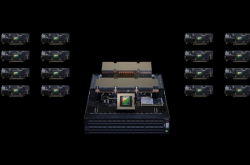American Auto Market | April's Market Shifts in Brazil: BYD Rises Against the Odds
![]() 05/21 2025
05/21 2025
![]() 614
614
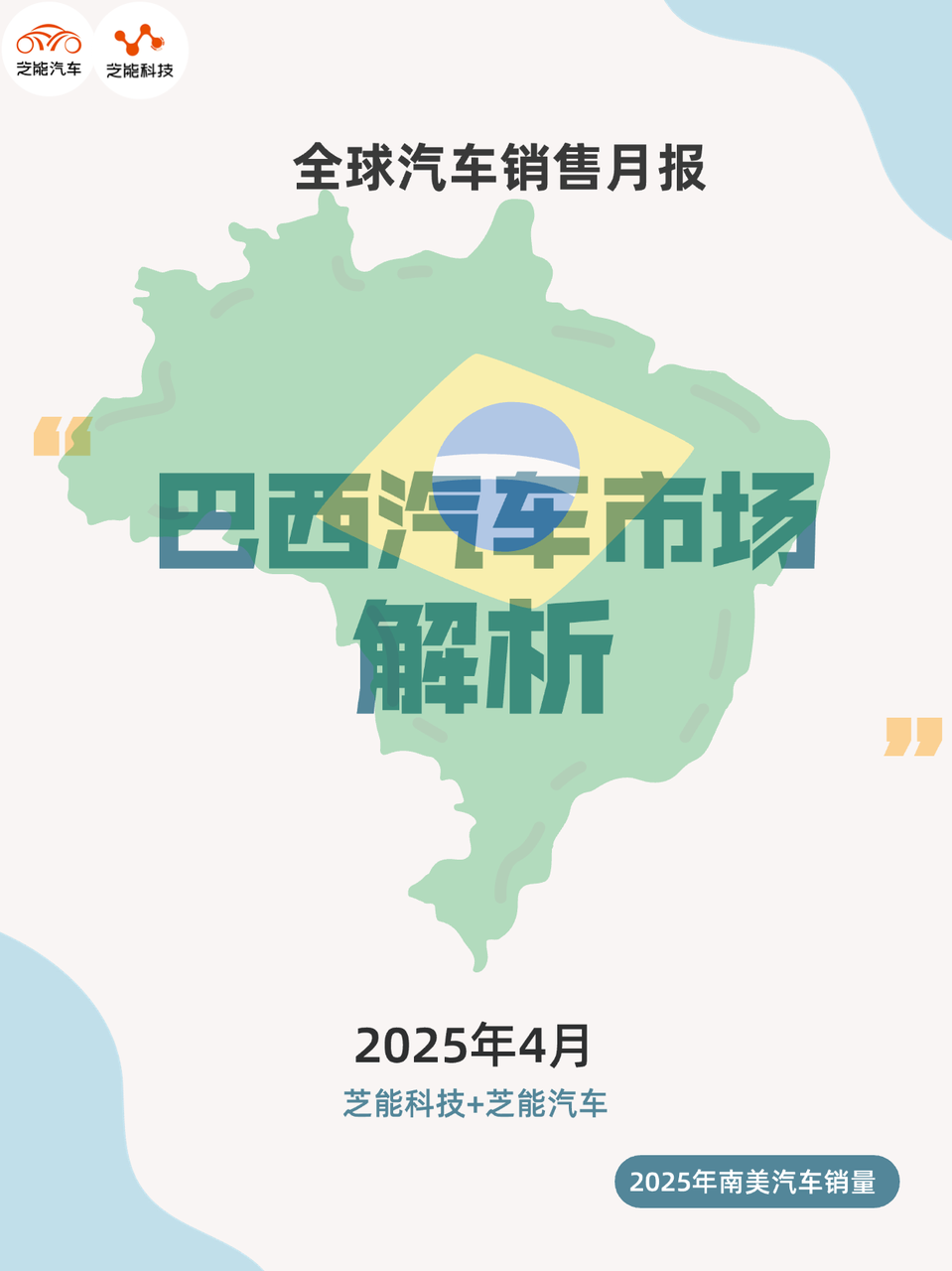
Brazil's light vehicle market witnessed a 5.6% decline in April 2025, yet this did not dampen the burgeoning momentum of new energy vehicles.
Amidst inventory adjustments and product transitions, traditional automakers generally felt the pinch, but Chinese brands, spearheaded by BYD, bucked the trend, thriving in a sluggish environment. BYD recorded a 20.4% year-on-year growth, firmly securing eighth place and maintaining its spot among the top ten for the 17th consecutive month, continuously broadening its presence in the local market.
The shift towards electrification in the Brazilian market has begun to take shape, with Chinese brands emerging as a pivotal force in this transformation.
01
Market Evolution Amidst Corrections:
Partial Breakthroughs Beneath Traditional Dominance
In April 2025, Brazilian sales of new light vehicles dropped to 196,326 units, a 5.6% year-on-year decline, ending a stretch of consecutive growth. While this doesn't signal a reversal, it underscores the market's sensitivity to changes in pricing, policy, and power dynamics. Cumulative sales for 2025 still maintained a 3.1% growth rate.
● Brand Landscape
◎ Fiat retains its dominance, further consolidating its local market share at 21.9%, a slight increase year-on-year.
◎ Volkswagen trails closely behind, with a robust product lineup enabling a market share increase to 16.6% despite a 2.8% year-on-year decline.
◎ Chevrolet, however, experienced a significant 31.3% decline, with its market share slipping to 10.4%, revealing weaknesses in its product replacement cycle and pricing strategy.
◎ Korean brands showed resilience, with Hyundai growing 5.7% against the trend, surpassing Toyota to rank fourth.
◎ Renault and Jeep performed modestly, hovering at lower levels.
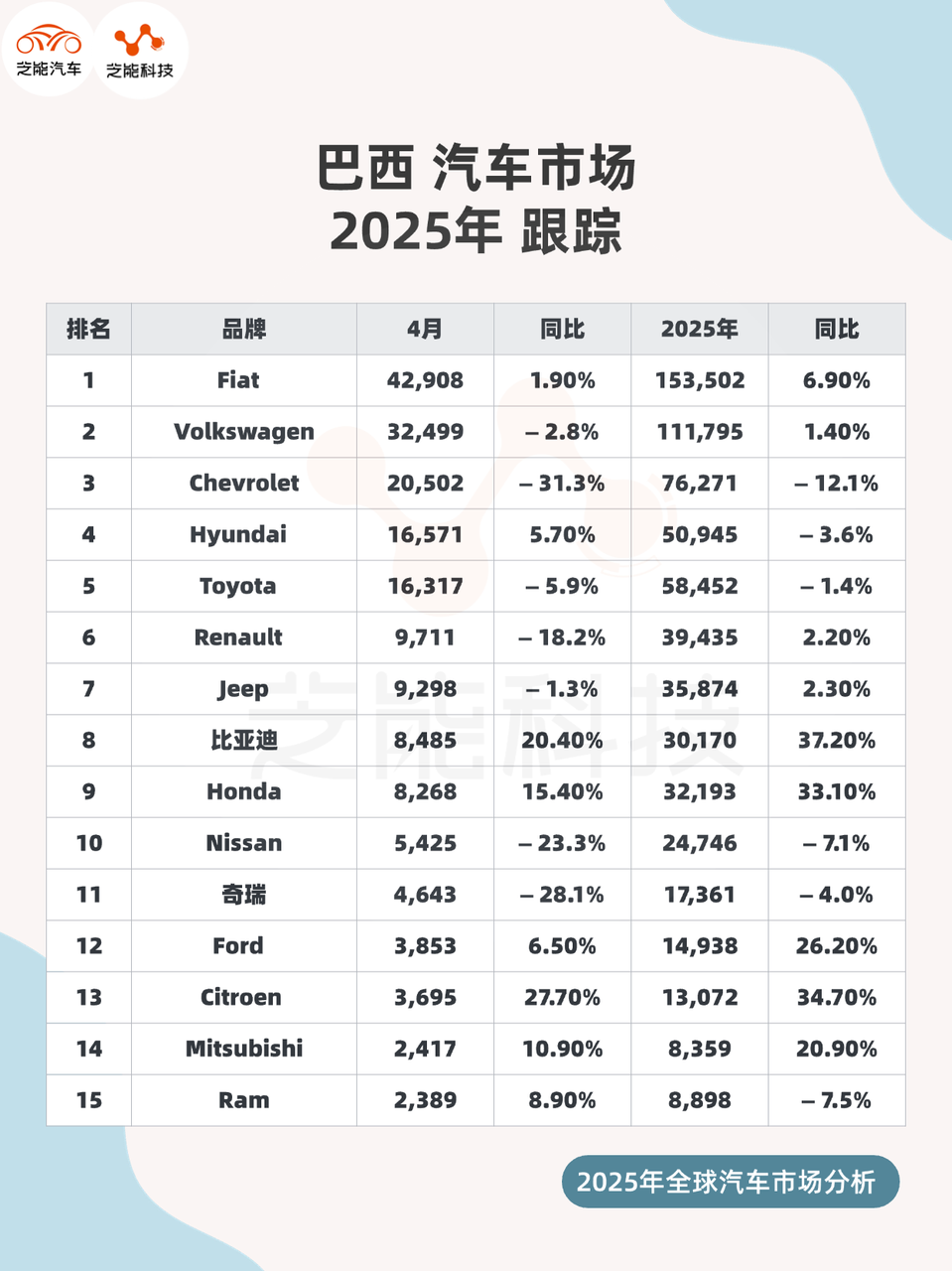
◎ In contrast, Chinese brands demonstrated notable breakthroughs. BYD soared to eighth place with sales of 8,485 units, a 20.4% year-on-year increase, making it the fastest-growing brand among the top ten.
◎ Honda also fared well with a 15.5% increase, but Japanese brands as a whole struggled to maintain stability amidst current market volatility.
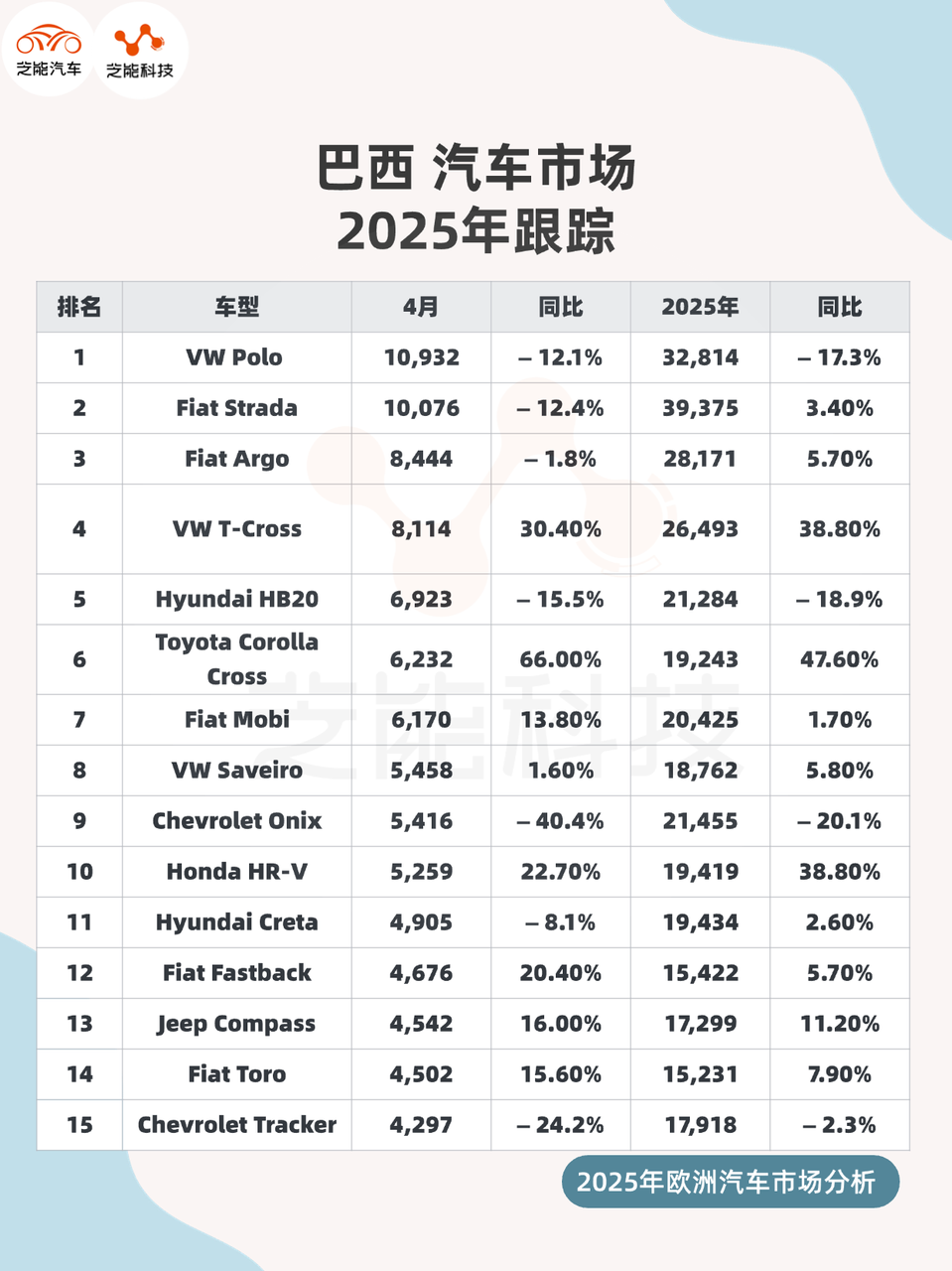
● Model Structure Perspective
◎ Volkswagen Polo reclaimed the top spot after five months, with monthly sales of 10,932 units, but still experienced a 12.1% year-on-year decline, indicating the waning competitiveness of traditional fuel-powered small cars.
◎ Fiat Strada and Argo maintained their strength but also saw slight declines.
◎ The mid-to-high-end SUV segment shone brightly, with Volkswagen T-Cross surging 30.4%, Honda HR-V increasing 22.7% year-on-year, and Toyota Corolla Cross soaring 66%, the most impressive performance among main models, reflecting the growing consumer preference for SUVs and hybrid vehicles.
◎ Fiat Fastback set a new historical high with a 20.4% increase, ranking 12th. The rise of this premium SUV further validates the increasing appeal of crossover models to Brazilian consumers.
02
The Rise of Chinese Brands:
BYD Leads the Charge, Accelerating the Formation of the New Energy Camp
For Chinese automotive brands, the Brazilian market in April 2025 was a pivotal battleground.
◎ BYD's stellar performance stood out. Amidst an overall market downturn, it achieved a 20.4% year-on-year growth, with monthly sales exceeding 8,000 units and cumulative sales for the year reaching 30,170 units, a 37.2% year-on-year increase.
This feat not only cemented its position among the top ten for the 17th consecutive month but also marked the preliminary completion of its strategic transformation from "testing the waters" to "firmly establishing itself".
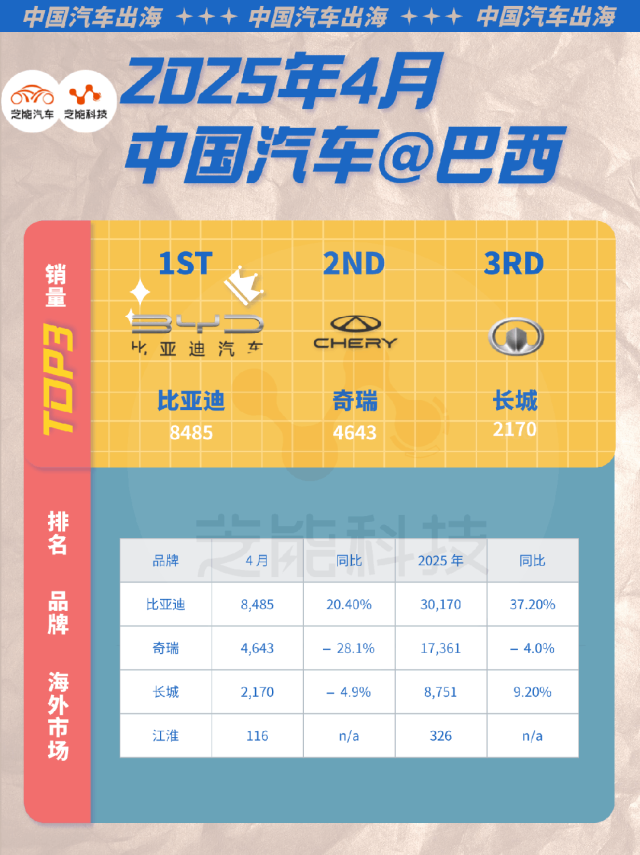
BYD's success is not fortuitous. Most of its models in the Brazilian market are new energy vehicles, encompassing plug-in hybrids and pure electric platforms, which not only align with local policy trends towards clean energy transformation but also precisely meet middle-class consumers' expectations for intelligent, high-configuration products.
Leveraging mature technology and vehicle integration capabilities proven in the Chinese market, BYD has established a solid brand recognition in Brazil. Chery and Great Wall are also seeking breakthroughs through continuous operations.
◎ While Chery declined by 28.1% in April, its cumulative sales still reached 17,361 units, maintaining a market presence with SUV series like Tiggo.
◎ Great Wall's Haval brand performed relatively stably, with sales of 2,170 units in April, a slight 4.9% year-on-year decrease, and a cumulative increase of 9.2% for the year. Although it still struggles to shake the mainstream brand position in terms of market share, as a representative of the integration of high-end SUVs and new energy technologies, its potential is generally optimistic within the industry.
◎ Brands like JAC, though yet to form a significant scale, are gradually expanding their brand boundaries through strategies of low starting points and regional breakthroughs. JAC's monthly sales were only 116 units, but it has begun introducing pure electric models into local markets to gauge local acceptance.
◎ Zeekr, still in its introductory phase, marks China's high-end electrification strategy as an intelligent pure electric brand with its entry into Brazil.
In the overall competitive landscape, Chinese brands are gradually eroding the strongholds of traditional joint venture automakers in the Brazilian market through new energy vehicles.
Compared to traditional brands reliant on the replacement cycle of fuel vehicles, Chinese automakers' "first-mover advantages" in electrification path selection, cost control, and technology integration are gradually becoming apparent. Especially in markets like Brazil, which face dual pressures of fuel economy and environmental protection, Chinese brands are swiftly creating gaps through a combination of "cost-effectiveness + technology density".
Summary
China's Speed on the New Energy Frontier
Despite Brazil's automotive market experiencing a cyclical downturn in April 2025, it holds significant implications for long-term trends. Chinese brands such as BYD not only maintained their market share during this round of market adjustments but also achieved growth against the trend through consistent product strength, reshaping the market competition landscape with electrification and intelligence as pivots.
With BYD's continuous deepening in the Brazilian market and the orderly expansion of other Chinese brands, the globalization transformation of China's auto industry is entering a "harvest" stage.
In the future, how Chinese brands can further adapt to local consumption habits, deepen their channel networks, and enhance after-sales experiences will be crucial for establishing a firm foothold in Brazil and the entire Latin American region.








